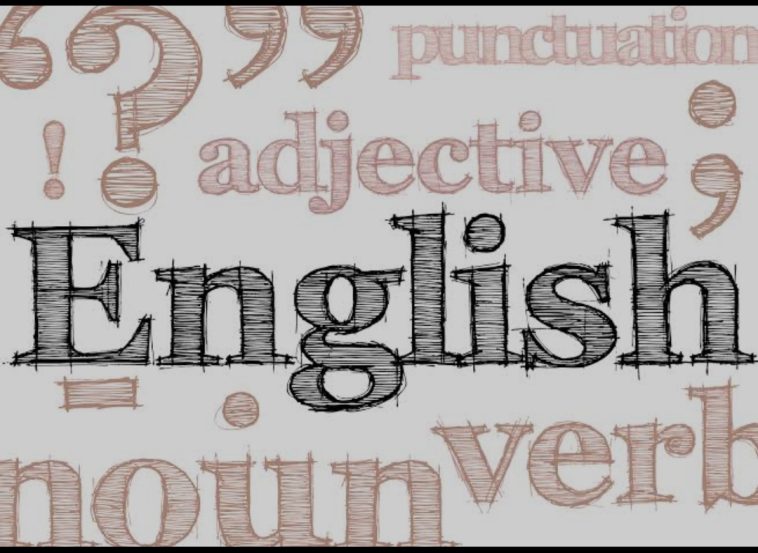If kabalagala is a Ugandan pancake why isn’t a pancake an American kabalagala?
It’s a serious question. No emojis and double exclamation marks or any of the other dikuula punctuation things marketers use when they think they are being funny. It’s a serious question.
Why is a pancake not an American Kabalagala?
I am asking because things have become endemic. I just saw a chapati on a menu referred to as a tortilla and, just before that, a mandazi labelled as a “triangular doughnut”.
I may have to start walking around with an asegai in my laptop bag in case I find somebody trying to sell sumbusa as an “African crepe”, then I will have to fight on behalf of my ancestors.
Why do we do this? Why do we insist on putting English names to very, very non-English things?
Triangle doughnut is not the English name for mandazi because there are no mandazi from England. For the English to have an English name for something, they have to have had that thing in the first place. Let me illustrate.
Sir Walter Scott, if I remember correctly, and I don’t (I neither remember nor care; I am on a typing roll and am not going to backspace ) was a leading English importer of food customs, right? He brought the baguette, the croissant and the avocado to England, right? Right. Don’t interrupt me with facts, I said I donwant. Just say right. Right? Good.
There he was, prancing through Paris, looking for foods to take home, when he came upon a croissant, a soft, fluffy French pastry. He took it back to London and the English loved it.
They did not call it the “parchuble” or the “gresmire.” They called it the croissant. And here is why.
When Sir Walter Scott scuttled into a Parisian bakery and met his first croissant, he looked at the French baker and asked, “Ici?”
The French baker replied, “C’est croissant.”
Sir Walter Scott asked, “Par anglais, sil vous plait?” because he needed to know its English name.
The French baker snorted stereotypically. “Anglais? Cochon impérialiste! Non Anglai. François! C’est Croissant! Merde!” He felt insulted that this nigga thought his French food must have an English name, as if anyone English contributed to its creation.
Sir Walter Scott returned to England and into the dining room of Buckingham Palace, there to meet the Queen or King, depending. I am going to go with queen because I am too infuriated right now to break my stride by googling. Let’s go with Queen. It was Queen Gladys VII or something like that. It doesn’t matter. Whoever it was, and it was Gladys, then asked him what the nyummy pastry was.
Actually she probably asked “Whence” because English was different back then. They changed it before they colonised us. Prior to the White Man’s Burden they said, “Whence this delicate bun?” not, as the current Englishperson says, “Wagwan fam, I flippin wan’ know wo’ this flippin bun is, knahmean?”
Sir Walter Scott replied, like a gentleman, a scientist, a scholar, and an intelligent human being, “Croissant.”
The Queen tasted it, liked it, and declared it delicious. She called her minister of foods to give her guild of bakers the recipe so they could cook croissants all over London.
None of them even thought of renaming them “Reppells.”
When food from outside England reaches her shores it does not get a new name because none is necessary. It already has a name, the English find, so they just continue using that. They mispronounce it, yes, but so do we. None of you have read the word “croissant” in French the whole time you were reading this.
In effect, the English name of this food is the same as the French name, only in an English accent.
The same with curry, pizza, lasagne, quesadillas, cappuccino and biltong.
And the same should be with kabalagala, mugoyo, eshabwe, githeri and mandazi because, compatriots, do you know what the English name for chapati is? Chapati which originated in India? First guess the Indian name for chapati. Okay. Good. Now what did the English call it? You are catching up. Nice. Then, when it came to Uganda, or what was to be turned into Uganda, what did both we and our English oppressors call it? Excellent.
There is a reason this angers me so much, this idea that we have to give everything an English name, this feeling that for a thing to count it needs to have the validation of an English name, otherwise it is some sort of cultural nonentity — if it cannot fit into the basket of English, it has no place among civilised people like us — is that it’s from the ingrained propaganda that teaches us to think that only English things matter, that non-English things are savage, primitive, backward, and immoral; spit them out and stomp them into the earth, with your Clarkes not your lugabire, and turn from them, turn your back to the black and walk white into the light of Englishness.
This was a deliberate act of imperialism. It was a strategy called the White Man’s Burden. To civilise “savages”, he, for he was the white man, even when it was Queen Gladys, had to change their savage ways. It was his view that white culture was sophisticated and enlightened, and everything inside it was better. Everything outside of European culture was, therefore, dark and barbarian.
He did not just think this of things like FGM, slavery, child soldiers, public executions without trial, culturally and politically-encoded misogyny and such. Those things were savage, yes, but we won’t talk about them here because Sir Walter Scott and English Queens did all of them, too.
It was not just things like not having scientific medicine, boiled water, representative democracy, and literacy, because, even though no one with a fair and open mind will dispute that these are clear markers of advanced society, civilization if you prefer the term, well, at the time of colonisation the vast majority of Europe didn’t have them either.
Yeah, we may imagine that everyone in colonial England was living in Downton Abbey while everyone in Africa lived in a hole in the ground, eating rats after having sex with them, but dude, the huge bulk of the European population was just as backward as the rest of the world.
Civilisation tends to occur only in relatively tiny urban pockets. Even when they tell you that Ancient Mali had a great university called Timbuktu and ancient Greeks had Athens, at that time, most Malians and most Greeks were illiterate peasants who thought the thunder was their dead grandparents scolding them for having gay thoughts and that they needed to sacrifice another virgin.
Anyway.
So Henry Stanley, in his quest to civilise the protectorate, proceeded to Anglicise it. He taught his subjects that, to be better human beings they had to learn to do English, English being an act, a way of being.
Even after the protectorate was abandoned, this, along with all the other bullshit they created here, was left to fester and fulminate. Like Amin, who became president and essentially doomed Uganda to be a poor country peku even the 61st independence anniversary.
And our culture still remains in chains. We still sit here thinking that things have to be English to be proper. Our movies are great, but not as great until Netflix posts them up. Our writers are proficient, but not great until Penguin publishes them. Our singers are fine. But not that great until BET is gracious enough to nod.
Don’t interrupt me, I know. But by now I think we can all see that Englishness is not a country, it is a dominant culture machine that includes America.
And our food is not food if it cannot fit into English.
Although… there is the tendency to give English things African names, which habit would perhaps repudiate this whooooole rant. Like croissant is now akagaati akafalansa.
This post was created with our nice and easy submission form. Create your post!






